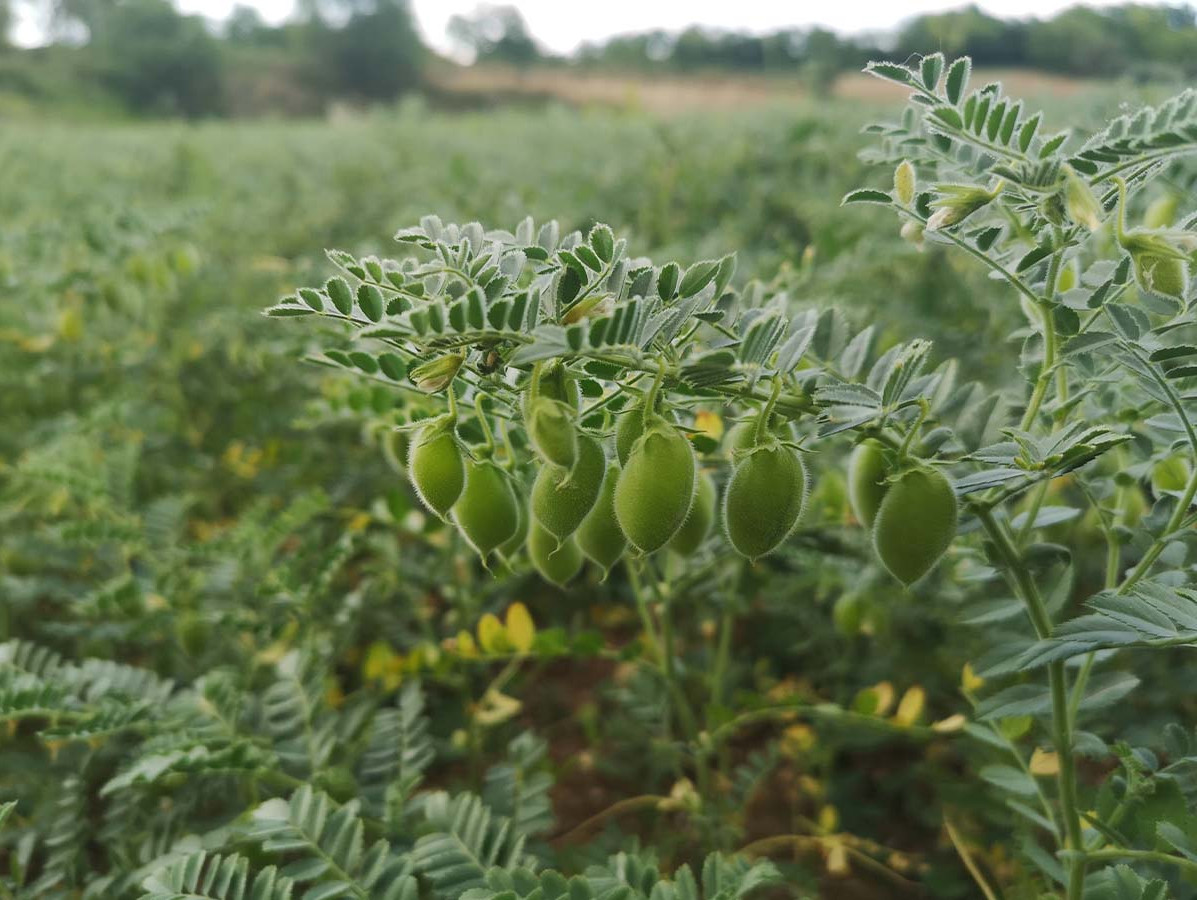
A breakthrough in Dutch agriculture: for the first time, chickpeas are being grown on a large scale in the Netherlands. This week, growers in various regions including Groningen, Limburg, and Flevoland have started planting. The expected harvest in the autumn is estimated to yield around 30 tons of chickpeas. This development opens new opportunities for Groentegoed, a company from Lopik that produces vegetable spreads, to use entirely Dutch-grown chickpeas.
There is a noticeable increase in the demand for plant-based proteins from local Dutch sources. Consumers are increasingly opting for locally grown products, significantly boosting interest in Dutch chickpeas. Groentegoed, known for its vegetable spreads, and Laan Landbouw, a grower from Tollebeek, have observed this trend as well. The first Dutch chickpea harvest in 2023 already provided 10% of the chickpeas used by Groentegoed. With the 2024 harvest, this percentage could rise to 100%.
The rise of Dutch chickpeas is supported by the collaboration between Groentegoed and the Producentenorganisatie Eiwitboeren van Nederland. This organization aims to increase the cultivation, production, and consumption of leguminous protein crops. Plant-based proteins from local sources play a crucial role in making the agricultural system more sustainable. Chickpeas contribute to soil health, increased biodiversity, and reduced CO2 emissions. Henk Janknegt, chairman of Eiwitboeren van Nederland, emphasizes the opportunities this collaboration offers to growers and the contribution to sustainable farming.
With the expansion of cultivation, Groentegoed plays an important role in promoting locally grown chickpeas. Albert van der Veen, co-founder of Groentegoed, sees strong demand for local products. "Caterers and end users find it appealing to know they are using a Dutch product that also contributes to sustainable agriculture. The demand for Dutch chickpeas is high, and we are happy to process them." The increase in Dutch chickpea cultivation thus provides both economic and ecological benefits.
Source: Nederlandse Eiwitboeren